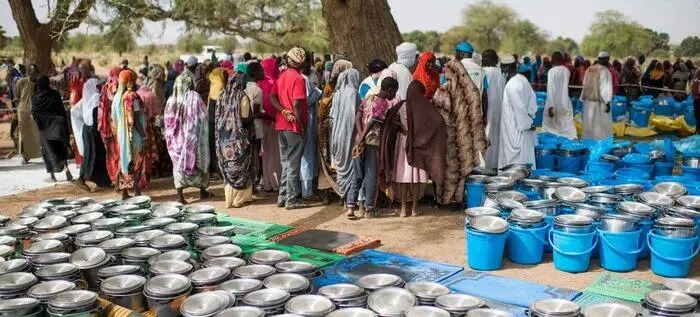Conflict in Sudan’s Breadbasket Threatens Food Supplies

Agencies – Sudan Events
Fighting in Sudan has spread into the country’s breadbasket, and the Famine Early Warning Systems Network (FEWS NET) is warning that new disruptions to trade and harvesting, in addition to challenges in importing, pose a significant threat to national food availability.
In a new Alert, FEWS NET analysts reported that nearly one-third of the population of Sudan is in need of emergency food assistance, making it one of the world’s worst food crises.
“We are expecting high levels of acute food insecurity across the entire country,” FEWS NET Senior Food Security Analyst Emily Turano said. “Attacks in mid-December interrupted the main season harvesting and cultivation of winter wheat in highly productive regions of Sudan.
Wad Madani, the capital of the state of Al Jazirah in central Sudan, was recently considered a major hub for trade and humanitarian operations. The city was severely affected by the latest round of fighting between the Sudanese Armed Forces and the Militia of Rapid Support Forces (RSF) with widespread looting reported in markets, shops, public buildings, private residences, and humanitarian warehouses.
The areas of highest concern in the country are El Geneina, West Darfur, where atrocities against civilians are occurring, and Omdurman, Khartoum, where intermittent blockades are restricting the movement of people and goods.
FEWS NET projections indicate that acute food insecurity will reach Emergency (IPC Phase 4) in heavily impacted urban areas. Thousands of people in El Geneina and Omdurman are expected to face even worse Catastrophe (IPC Phase 5) outcomes at the peak of the upcoming lean season.
“The lean season is expected to come as early as March,” Turano said. “If nothing changes between now and then, we can expect deepening hunger in El Geneina, Omdurman, and other areas where heavy fighting is occurring.”
Even before the latest attacks, the conflict in Sudan had already resulted in the world’s largest internal displacement crisis. Since the recent escalation of violence in Al Jazirah, more than 500,000 people have been freshly displaced.
“Households have frequently fled with few to no assets, lost access to their typical livelihoods, and are living in precarious conditions often characterized by very poor health and sanitary conditions,” Turano explained. “They are highly dependent on local communities and assistance.”
The conflict remains highly volatile, and according to FEWS NET’s latest analysis, if the fighting continues to spread, higher levels of displacement, losses of harvest and food stocks, and market disruptions can be expected.
At a minimum, FEWS NET is calling for expedited approvals for humanitarians to cross conflict lines and assurances of safe passage for both aid and commercial trade flows to prevent worsening hunger.
“It has been nine months since the eruption of war, and we are witnessing a rapidly deteriorating crisis marked by widespread human suffering and surpassing humanitarian needs,” FEWS NET Team Leader Kiersten Johnson said. “There is an urgent need for proactive peacebuilding and conflict mitigation that address the core drivers of this transboundary humanitarian crisis.”



